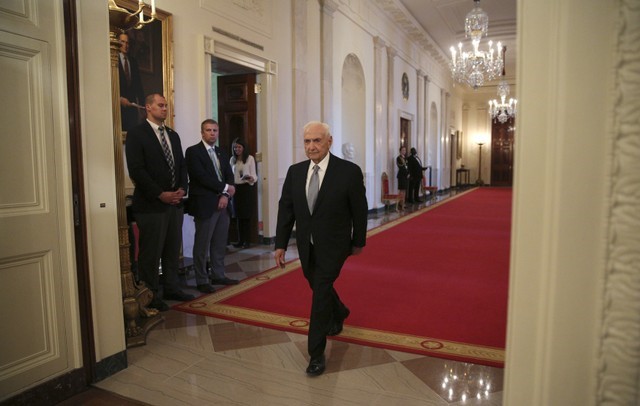Who is Kevin Hassett? Wolfe looks at the Trump ally tipped to become Fed Chair.
By Ian Simpson
WASHINGTON (Reuters) - Ground will be broken on Thursday for the Dwight W. Eisenhower National Memorial after years of opposition to the design and size of the $150 million monument to the late U.S. president, including from his granddaughter Susan Eisenhower who once referred to it as a "theme park."
Congress approved the memorial in 1999, but opposition to the plans by architect Frank Gehry stalled it for years. Criticism focused on eight-story-high columns supporting a steel tapestry portraying the Kansas prairies where Eisenhower grew up.
In 2014, a House of Representatives' committee report referred to the memorial a "five-star folly" plagued by rising costs, construction delays and design flaws.
The president's family removed its objections last year after Gehry reduced the size and changed the tapestry's image from Kansas farmland to Normandy beaches to better reflect Eisenhower's international stature.
Gehry's plan got final approval from Washington's planning and arts commissions this fall.
The ceremonial groundbreaking will mark the start of construction of the four-acre (1.6-hectare) memorial, which supporters have said is a fitting tribute to the 34th president and World War Two Allied commander.
"This is long overdue. This is a man who freed Western Europe from tyranny and then gave us eight years of peace and prosperity," Kansas Senator Pat Roberts, chairman of the memorial's commission, said by telephone.
Roberts, a Republican, said the monument near the National Mall was expected to be completed in 2020 in time to mark the 75th anniversary of the defeat of Nazi Germany.
Some critics remain.
"It's a national embarrassment that we are building a grandiose, inscrutable and ugly memorial that virtually no one likes," Justin Shubow, president of the National Civic Art Society, said in an email.
Congress, which had long refused to fund the project, allocated $45 million for construction in the current fiscal year.
The administration of President Donald Trump is asking for another $40 million next year, and Roberts said the Eisenhower commission was halfway to its goal of raising $35 million in private funds.
